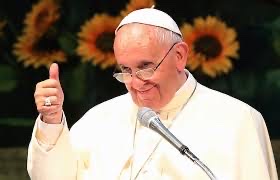Canon 2227 and the canonical definition of "clergy"
There is a big problem with the Kurgan theory that at a certain point in time, all priests, bishops and cardinals became heretics, and automatically lost their office, clerical state, and are no longer even catholic.
Besides the fact of "once a priest, always a priest", his problem is canon 2227, which states as follows (my comments in red, emphasis added in bold)
Canon 2227
Par 1 - “A penalty canon be imposed or declared against those mentioned in Canon 1557 par 1, except by the Roman Pontiff.”
(So, we see here that there is a certain group of people who cannot receive a penalty from a canon, except if it is imposed by the Pope himself)
Par 2 - Unless specifically mentioned, Cardinals of the H.R. are not included under penal law, nor are Bishops [liable] to the penalty of automatic suspension and interdict”
(For a Cardinal or Bishop to be included under a canon law, they have to be specifically mentioned in that canon law. In case there is any doubt, it specifies that Bishops are also not liable concerning automatic suspensions)
The latin for Par 2 above reads as follows:
“Nisi expresse nominentur, S. R. E. Cardinales sub lege poenali non comprehenduntur, nec Episcopi sub poenis latae sententiae suspensionis et interdicti”
(The latin specifies “Latae Sententiae”, which means an automatic, “ipso facto” penalty. Once again, Bishops are not liable unless specifically mentioned. Now let’s look at canon 1557 par 1)
Canon 1557 par 1
It belongs only to the Roman Pontiff to adjudicate:
1 - Those who have the supreme governing power of people, and their sons and daughters, and others who are next in the line.
2 - Cardinal Fathers
3 - Legates of the Apostolic See, in criminal cases, Bishops, even titular ones.
(Canon 1557 par 1 no 3 reinforces the fact that Bishops are only judged by the Pope)
If we go to the commentary on the 1917 Code by Dom Augustine, (this is the over 4,000 page commentary that came out in 1918, right after the code of 1917), we get even more clarification:
COMMENTARY OF DOM AUGUSTINE
1 - The general rule is that those who are subject to laws or precepts are also subject to the penal sanctions attached thereto, unless they are expressly exempted, Hence
- The lawgiver himself is not subject to purely ecclesiastical penalties by compulsion (vi coactiva), though morally speaking, or from a sense of propriety (vi directiva), he may be said to be subject to them. Practically it is better to say that he is not subject to his own penal laws
- Rulers of nations and their offspring and successors are immediately subject to the Roman Pontiff, who alone can issue a condemnatory or declaratory sentence against them (canon 2227 par 1)
- Cardinals are immune from penal laws, unless they are expressly mentioned as subject to them. Thus in the Constitution of Pius X, “Vacante Sede,” (e. g., n. 51) they are threatened with excommunication latae sententiae if they reveal the proceedings of a papal conclave. They are also mentioned in can. 2397, concerning the oath they have to take.
This is the one that we are most concerned with:
d) Bishops, also titulars, are not subject to the penalties latae sententiae of suspension and interdict, unless they are expressly mentioned, as in canon 2370 and also in san 2373. Although the name “bishop” does not occur in the later canon, it certainly applies to Ordinaries. Other penalties, like excommunication and privation or income (can. 2398) they may also incur.
There are only two canons mentions that incur a penalty to a Bishop. If you revisit canon 188.4, you will see that, like almost all of canon law, does not apply to bishops and cardinals. The thought that any automatic penalty can be imposed on a bishop is wrong, and the canon law of 1917 says this is the truth. Bishops are the "judges" of Canon Law, not the "judged". If you deny this, you deny the hierarchy of the Church, which is. heresy.
When I brought this to his attention, he tried to counter with what he uses for the definition of "cleric", which, in a general term, means "all the clergy". However, that is not the definition used in Canon Law. In canon law, bishops are referred to as either "bishops", or "ordinaries" when they are in charge of a diocese. The term "clerics" in canon law means "priests and below".
Of course, Kurgan begins by calling people who disagree with him "stupid":
Then, he posts the first part of the definition from the "New Advent" website:
I read down a little further, and come to the correct definition for Canon law:
Read the whole thread here:
https://social.infogalactic.com/micropost/65d01bc6-32a9-4dce-932a-e9f32378c35b
Conclusion
Except in very rare instances, no automatic penalty in the 1917 code is imposed on a bishop or cardinal. Bishops and cardinals are only judged by the Pope. And from canon 1556 we learn that the Pope is judged by no one. Bishops, also called "ordinaries" in canon law, are the judges. Clerics, defined as priests and below, are the "judged"
Kugans' theory about canon 188.4, that bishops and cardinals "automatically", "Ipso Facto" incur a penalty is disproven by the canon itself., as they are not specifically mentioned.
Kurgan is using the wrong definition for cleric as it is used in canon law. He refused to acknowledge this so he can continue to live in his own false reality.
The foundation of Kurgan's 188.4 theory is destroyed by the 1917 code itself, and the true definiton of the word "cleric".




Comments
Post a Comment